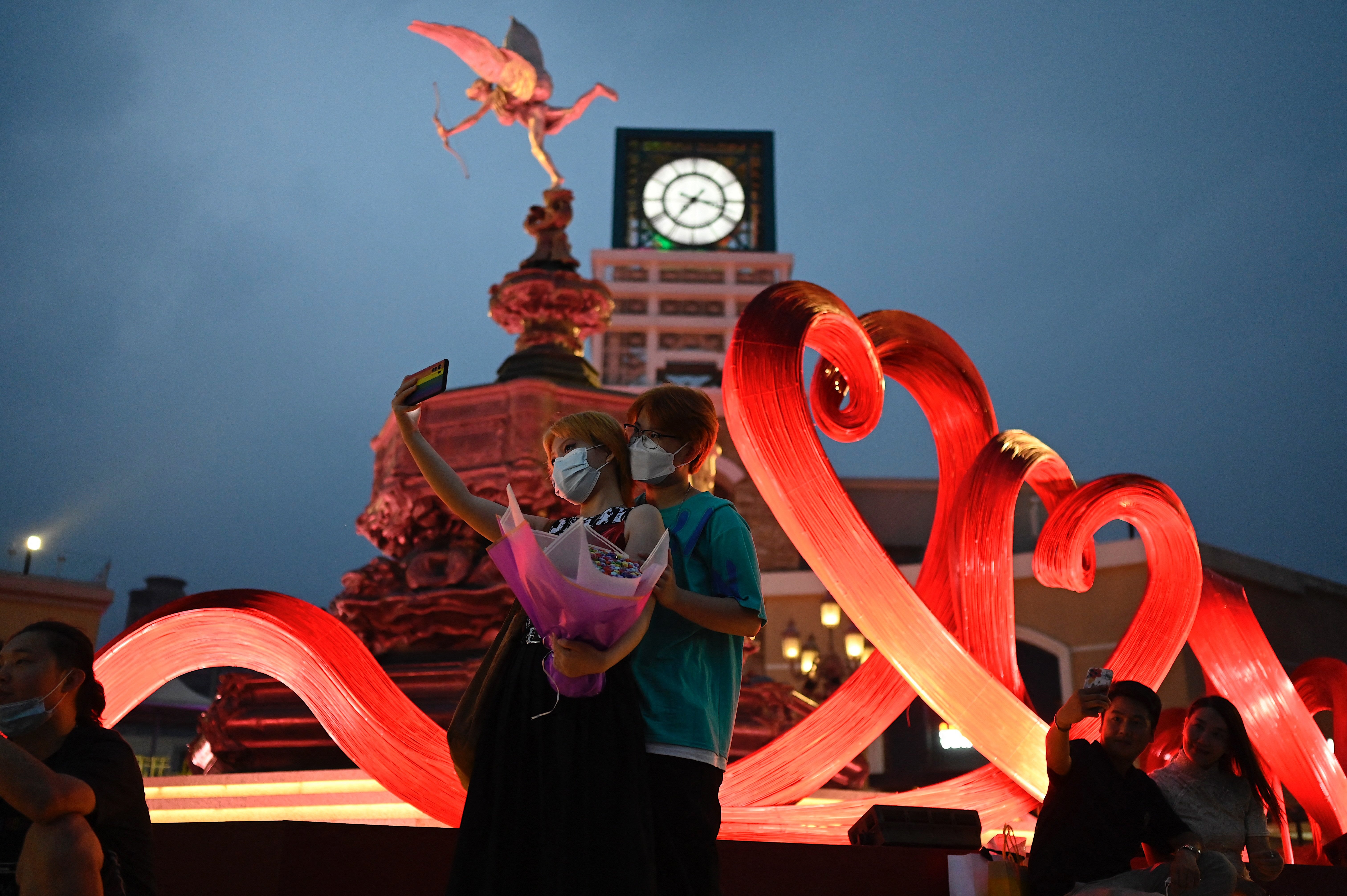Your support helps us to tell the story
From reproductive rights to climate change to Big Tech, The Independent is on the ground when the story is developing. Whether it's investigating the financials of Elon Musk's pro-Trump PAC or producing our latest documentary, 'The A Word', which shines a light on the American women fighting for reproductive rights, we know how important it is to parse out the facts from the messaging.
At such a critical moment in US history, we need reporters on the ground. Your donation allows us to keep sending journalists to speak to both sides of the story.
The Independent is trusted by Americans across the entire political spectrum. And unlike many other quality news outlets, we choose not to lock Americans out of our reporting and analysis with paywalls. We believe quality journalism should be available to everyone, paid for by those who can afford it.
Your support makes all the difference.China is celebrating the Qixi festival – its version of Valentine’s Day – along with other countries and territories in Asia like Taiwan and Singapore on Thursday.
The traditional holiday is celebrated on the seventh day of the seventh month of the year on the lunar calendar, and is referred to as the double seventh.
The Google Doodle on Thursday, 4 August, celebrates the traditional holiday that is observed in some parts of Asia, with the doodle visible in the UK, Germany and Taiwan.
On Qixi, couples and singles exchange gifts such as roses and sweets with their romantic interests.
The festival is based on an ancient fable dating back to the Han dynasty about an oxherd boy named Niulang, or Altair, and the fairy Zhinu, also known as Vega. They are believed to have met in the sky on the double seventh.
According to legend, the oxherd and the fairy fell in love, following which Zhinu decided to stay on Earth without permission from her family in the heavens. She became a weaver girl to survive on earth, and the lovers had two children.
Zhinu’s mother and the queen of the heavens, upset by her daughter’s actions, forced her to return. Niulang and his children flew into the skies to save his wife but were exiled back to Earth by the queen, according to the romantic legend.
The queen used a hairpin to create a river between the Earth and the heavens, thereby separating her daughter from her family.
The family plunged into despair, and this misery radiated throughout the universe. Following this, the queen relented, the legend says. Sensing her daughter’s pain, the queen allowed her to meet her family over the river on the double seventh via a bridge of magpies.
Today, Qixi has many other names, including the Double Seventh festival, the Night of the Sevens and the Magpie festival.
“Older traditions used to include demonstrations of crafting skills, worship services devoted to Zhinü and flower-hanging ceremonies honoring oxen,” Google said in its description of the doodle. “These traditions have been recognised less by younger generations, who prefer to celebrate in simpler ways.”

Join our commenting forum
Join thought-provoking conversations, follow other Independent readers and see their replies
Comments